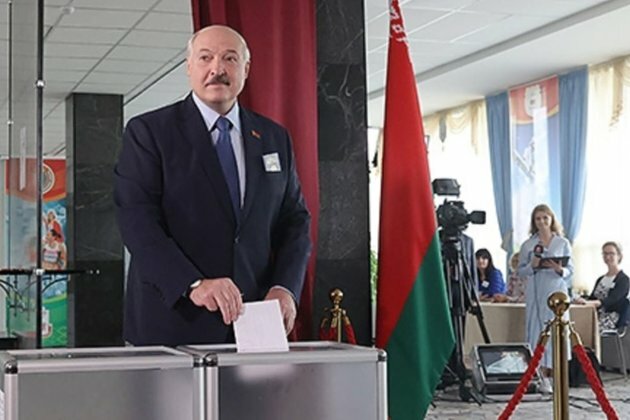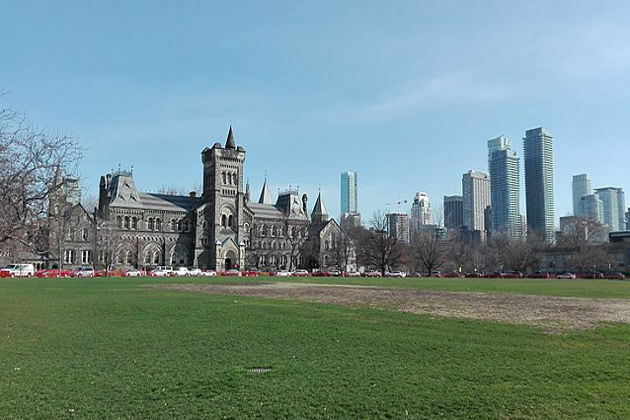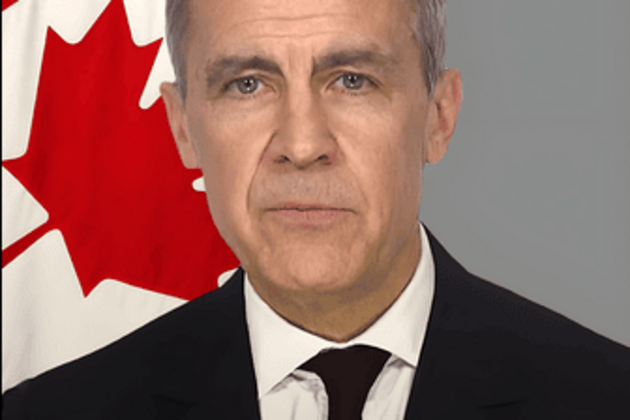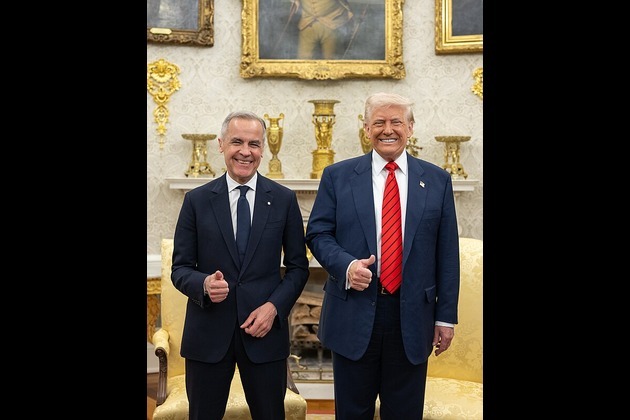Belarusian Election Officials Declare Presidential Vote Valid
RFE
09 Aug 2020, 16:15 GMT+10

MINSK -- The Central Election Commission in Belarus has declared the country's August 9 presidential election as valid, announcing shortly after noon local time that 54 percent of eligible voters had cast ballots in a race where incumbent Alyaksandr Lukashenka is seeking a sixth term.
The election commission had announced just before polling stations opened early on August 9 that about 40 percent of the 6.8 million eligible voters had cast ballots during early voting that started on August 4.
The election follows a campaign marked by the arrest of more than 1,000 opposition supporters, the barring of several potential challengers, claims of a Russian plot to sow instability, and the rise of an unheralded candidate who analysts say poses the greatest challenge to the 65-year-old authoritarian leader since his rise to power in 1994.
Four challengers are on the ballot, but attention has focused on Svyatlana Tsikhanouskaya, who was a last-minute replacement after husband, Syarhey Tsikhanouski, a popular vlogger who urged Belarusians to squash the "cockroach" Lukashenka with their slippers, was barred from running following his controversial arrest in late May.
SEE ALSO: The Accidental Candidate In Belarus Who Is Trying To Unseat 'Europe's Last Dictator'
Polls opened at 8 a.m. local time, and close 12 hours later at 8 p.m. local time. First preliminary results are due early August 10.
Just hours after polling stations opened, correspondents reported that authorities in Minsk had apparently blocked access to the Internet and social-media platforms in central Minsk -- with Facebook, Messenger, YouTube, Instagram, WhatsApp, and Viber all experiencing outages via mobile Internet connections.
Two grassroots election-monitoring websites also were inaccessible due to the reported election day blockages.
Roman Vasyukovich, a correspondent providing reports for Current Time TV's live election day program from Minsk, says Internet blockages also were making it difficult for independent media to report about voting irregularities they have documented.
"The connection is getting worse every minute, I mean the Internet" Vasyukovich said several hours after polling stations had opened on August 9. "It's very difficult to go live or to send videos. News websites and telegram channels are being blocked.'
The election comes with Lukashenka's popularity apparently waning. The country has suffered one of the highest per capita infection rates from the coronavirus. Many Belarusians have blamed Lukashenka, who ignored calls to impose social-distancing measures, dismissing COVID-19 as "mass psychosis" that could be treated with a shot of vodka, a ride on a tractor, or a trip to a sauna.
The World Bank predicts Belarus's economy will contract 4 percent this year, the biggest drop in 25 years.
The vote also comes as relations between Belarus and traditional ally Russia have worsened since December 2019 when Lukashenka pulled out at the last moment from plans for deeper integration with Russia under their 1999 Union Treaty. Since then, Moscow has limited energy supplies to Minsk, which is dependent on discounted Russian gas and oil to run its inefficient, largely state-dominated economy.
As in the past when relations with Russia soured, Lukashenka has turned to the West. In a sign of a thaw, U.S. Secretary of State Mike Pompeo in February became the most senior U.S. official to visit Belarus in more than two decades. In March, a first-ever shipment of U.S. oil was delivered to Belarus. In April, the United States nominated its first ambassador to Belarus in more than a decade.
SEE ALSO: 'A Win That Weakens': What Does Russia Want From Belarus's Election?
Tsikhanouskaya, who has teamed up with two prominent women from the campaigns of rejected candidates, has attracted huge crowds at rallies across the Eastern European country of 9.5 million.
The 37-year-old Tsikhanouskaya, an English translator who moved her children abroad after receiving threats, has vowed to rerun the election with all the barred candidates included should she win.
"I see how many people come to our rallies and how many have wanted to come but just couldn't, or those who come whether I take part in it or not," Tsikhanouskaya said in a recent interview with Current Time, a Russian-language network led by RFE/RL in cooperation with VOA.
"It's a clear sign that people want change. People have woken up. They no longer want to live in fear and humiliation. They want to feel that they are citizens of their country. It's inspiring. I realize there are people behind me, around me, and ahead of me,"
Lukashenka has dismissed Tsikhanouskaya and her two high-profile female campaigners as "poor things" and said Belarus was not ready to elect a woman as president.
Belarus Votes For President
Read our coverage as voters in Belarus decide on August 9 whether President Alyaksandr Lukashenka will continue after 26 years in power.
Tsikhanouskaya's campaign chief was detained on August 8 just 24 hours before the election. Tsikhanouskaya's spokeswoman told RFE/RL that campaign chief Maryya Maroz was detained and would go before a court on August 10.
Separately, the Minsk-based Vyasna (Spring) human rights group reported dozens of cases of police harassment and intimidation at polling stations, as well as the detention of independent election observers during early voting.
Lukashenka has suggested those opposed to him are "puppets" controlled by foreign masters bent on bringing instability to the country. In an address to parliament on August 4, he played up fears of a "color revolution" backed by Moscow and hostile powers in the West.
Without directly naming Russia, he repeated accusations that Moscow had sent mercenaries to destabilize the country.
"They've decided to try out new forms of color revolution against us," he said, a term that normally refers to earlier uprisings in Georgia, Ukraine, and Kyrgyzstan. "It won't work."
Belarus announced on July 29 that 33 members of the Russian private military contractor Vagner had been detained near Minsk and accused them of a vague plot to incite "instability" around the vote.
On July 30, all the presidential candidates were called in for a meeting with Belarusian security officials, who warned them of potential "provocations" and announced new security measures at campaign rallies. Belarusian officials also linked some opposition leaders, including Tsikhanouskaya's husband, of unspecified links with the mercenaries.
Later that day, Tsikhanouskaya held a rally in Minsk, drawing an estimated crowd of 63,000, the largest of the campaign.
"I am not a politician, and I do not need power," she said. "But my husband is behind bars. I had to hide my children for their safety. I sacrificed a peaceful life for all of our sakes. I'm tired of being patient. I'm tired of being silent. I'm tired of being afraid."
Lukashenka has hinted he would be ready to use the armed forces to stay in power. On June 23, he called on the military to suppress civil unrest and "protect sovereignty" from "hybrid threats."
With more than 1,000 people -- including bloggers, journalists, and activists -- arrested since the presidential campaign in May, Amnesty International has accused the Lukashenka government of a "full-scale attack on human rights" ahead of the vote.
"There is no safe environment for political debate in Belarus, and there is a growing crackdown on human rights in the context of the forthcoming election," said Marie Struthers, Amnesty International's Eastern Europe and Central Asia Director. "The wave of activism currently taking place in Belarus is unlike anything the authorities have faced for years, and they have responded by brutally crushing peaceful protests and dissent and punishing opposition leaders."
The Organization for Security and Cooperation in Europe (OSCE) announced in July that it would not send observers because they had not received a formal invitation. It is the first time the OSCE is not monitoring a nationwide vote in Belarus since 2001.
"We deeply regret that the OSCE will not have the opportunity to send observers to see this election," George Kent, who serves as U.S. deputy assistant secretary of state overseeing policy toward Belarus, told RFE/RL in an interview on July 30.
The Commonwealth of Independent States (CIS), a Russian-led grouping of former Soviet Republics, will have observers at the polls. In the past, CIS observers have largely approved votes in Belarus, unlike Western and international observers who have deemed no election under Lukashenka free or fair.
Belarus will have its own monitors as well -- more than 48,000 of them, according to Vyasna. Most are from state-run or state-controlled bodies.
But a few dozen independent observers, including 47 from the Belarusian Helsinki Committee, have been allowed to monitor polling stations.
Voting in the election actually began on August 4. Early voting by students, soldiers, teachers, and other state employees is encouraged -- sometimes enforced. Critics says it allows more time to tamper with ballots cast and manipulate the outcome.
According to Vyasna, some independent monitors have been blocked and at least 11 reportedly detained since early voting began.
With reporting by Current Time, RFE/RL's Belarus Service, Tony Wesolowsky, Reuters, and AFP
Copyright (c) 2018. RFE/RL, Inc. Republished with the permission of Radio Free Europe/Radio Liberty, 1201 Connecticut Ave NW, Ste 400, Washington DC 20036
 Share
Share
 Tweet
Tweet
 Share
Share
 Flip
Flip
 Email
Email
Watch latest videos
Subscribe and Follow
Get a daily dose of Atlanta Leader news through our daily email, its complimentary and keeps you fully up to date with world and business news as well.
News RELEASES
Publish news of your business, community or sports group, personnel appointments, major event and more by submitting a news release to Atlanta Leader.
More InformationInternational
SectionNative leaders, activists oppose detention site on Florida wetlands
EVERGLADES, Florida: Over the weekend, a diverse coalition of environmental activists, Native American leaders, and residents gathered...
Beijing crowds cheer AI-powered robots over real soccer players
BEIJING, China: China's national soccer team may struggle to stir excitement, but its humanoid robots are drawing cheers — and not...
COVID-19 source still unknown, says WHO panel
]LONDON, U.K.: A World Health Organization (WHO) expert group investigating the origins of the COVID-19 pandemic released its final...
Fox faces $787 million lawsuit from Newsom over Trump phone call
DOVER, Delaware: California Governor Gavin Newsom has taken legal aim at Fox News, accusing the network of deliberately distorting...
DeepSeek faces app store ban in Germany over data transfer fears
FRANKFURT, Germany: Germany has become the latest country to challenge Chinese AI firm DeepSeek over its data practices, as pressure...
Canadian option offered to Harvard graduates facing US visa issues
TORONTO, Canada: Harvard University and the University of Toronto have created a backup plan to ensure Harvard graduate students continue...
Business
SectionTech stocks slide, industrials surge on Wall Street
NEW YORK, New York - Global stock indices closed with divergent performances on Tuesday, as investors weighed corporate earnings, central...
Canada-US trade talks resume after Carney rescinds tech tax
TORONTO, Canada: Canadian Prime Minister Mark Carney announced late on June 29 that trade negotiations with the U.S. have recommenced...
Lululemon accuses Costco of selling knockoff apparel
Vancouver, Canada: A high-stakes legal showdown is brewing in the world of athleisure. Lululemon, the Canadian brand known for its...
Shell rejects claim of early merger talks with BP
LONDON, U.K.: British oil giant Shell has denied reports that it is in talks to acquire rival oil company BP. The Wall Street Journal...
Wall Street extends rally, Standard and Poor's 500 hits new high
NEW YORK, New York - U.S. stock markets closed firmly in positive territory to start the week Monday, with the S&P 500 and Dow Jones...
Canadian tax on US tech giants dropped after Trump fury
WASHINGTON, D.C.: On Friday, President Donald Trump announced that he was halting trade discussions with Canada due to its decision...













